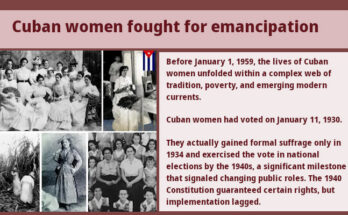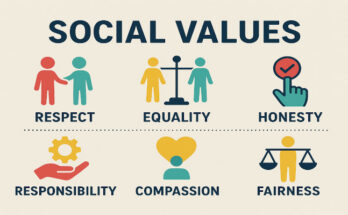In Cuba, Language Day is celebrated to pay tribute to the quintessential exponent of Spanish, Miguel de Cervantes Saavedra, author of “El Ingenioso Hidalgo Don Quijote de la Mancha”, an illustrious work of the Spanish language. The writer died on April 22, 1616, in Madrid-Spain, however, the date of his burial, April 23, was decreed as the day of his death by a custom of the time. It should be noted that William Shakespeare died on the same date, which is why English Language Day is also celebrated on April 23.
In 2010, the UN established the “Days of Languages”, to celebrate cultural diversity and multilingualism, so it was decreed April 23 as “Spanish Language Day”, however, in Colombia the date was imposed by Decree 707 of April 23, 1938.
The language that came to us with the conquistadors served to unify us and became a political issue by grouping people together.
Spanish language widely spoken
The Spanish language reached the American continent through the successive voyages of Christopher Columbus and, later, with the waves of colonizers who sought new opportunities in America. In their attempt to communicate with the indigenous people, they resorted to the use of gestures and then to European interpreters or captive Indians. Thanks to the interaction between the multiple cultures of the Americas and the colonizers, Spanish was learned by the indigenous peoples throughout much of the continent. However, many peoples retained their languages, and even today they remain in their cultures, although they also speak Spanish.
English, along with French and Spanish, is one of the two working languages of the United Nations Secretariat and one of the six official languages of the Organization.
Today, one in four people in the world speaks English, and it is increasingly used as a way for two speakers with different mother tongues to communicate with each other.
At the United Nations, English is one of the two working languages, along with French.
A perspective comes to us from Colombia on their vision of the use of language and their advocacy for it to continue as it is today, as the means for the preservation and transmission of cultures and idiosyncrasies.
The Day is the result of a 2010 initiative by the Department of Global Communications to establish language days for each of the Organization’s six official languages. The purpose of UN Language Days is to celebrate multilingualism and cultural diversity, as well as to promote the equitable use of the six official languages throughout the Organization.
Under the initiative, UN duty stations around the world celebrate six separate days, each dedicated to one of the Organization’s six official languages.
An essential factor in harmonious communication among peoples, multilingualism is of particular importance to the United Nations. By promoting tolerance, multilingualism ensures effective and greater participation of all in the work of the Organization, as well as greater effectiveness, better results and greater involvement.
“On this date we recall that we were unified through the language that came with the conquistadors. Language is also a political issue, since it groups peoples, society. Unfortunately, this has meant that many indigenous dialects, typical of our ancestors, have been lost. Although there are also several that survive to this day. Language is something that is alive and transforms over time. Gabriela de la Parra Morales, director of Eltipomóvil, who currently works as a proofreader at the Catholic University of Colombia Publishing House, explains the importance of this date for Colombia and the world “On this date we remember that we were unified through the language that came with the conquistadors. Language is also a political issue, since it brings together peoples, society.
Unfortunately, this has meant that many indigenous dialects, typical of our ancestors, have been lost. Although there are also several that survive to this day. Language is something that is alive and transforms over time. And this day also reminds us of that,” the professional emphasizes.
Why is it important to know how to write and read well?
“Because we live in a society crossed by writing and reading codes. They are basic elements to function in societies like ours. Writing is needed for practically everything: a letter of request, an authorization, a love letter or a farewell letter, a note, etc. Although the supports have changed, writing is now used everywhere and more often thanks to those new technologies and chat applications such as WhatsApp, Messenger, among others” highlights Gabriela Parra, who also assures that grammar and spelling are the pillars of writing. “Unfortunately, nowadays the lack of knowledge of these two aspects is dramatic. This lack of knowledge makes communication ineffective. Grammar and spelling serve to fulfill that communicative purpose and if these rules are not known and mastered, that objective is not met.
For Gabriela de la Parra Morales, young people today do not know how to distinguish between an acute and a grave word, nor do they know what punctuation marks are for “It seems that they know the comma as the only sign. They don’t have clear concepts and it’s as if they don’t care much about that, until they face situations where reality forces them to review that or puts them in trouble. For example, when they prepare a résumé or write an essay or a degree thesis.”
“In a place of La Mancha, whose name I don’t want to remember…”. Beginning of Chapter I of the book “El Ingenioso Hidalgo Don Quijote de la Mancha” by Miguel de Cervantes Saavedra.
Why should a good professional write well?
“Because when one has no other option but to write, what I write represents me, identifies me, outlines me, delineates me. What would you think, for example, when you see a resume on LinkedIn whose heading reads: “Systems professional”. I think we need to create this awareness that we all need to learn to write well (not only professionals). Writing becomes, in these cases, your letter of introduction and recommendation”: assures the professional.
The professional recommends two books for people to write well: “La Cocina de la Escritura” by the Spanish philologist Daniel Cassany and “Español Correcto” by the Colombian Fernando Ávila “Reading is a practice that, in my opinion, should not be imposed but enjoyed, done for pleasure. That is why I also recommend that you explore the topics that concern you and read about them and go deep into the fascinating world of words,” concludes Gabriela de la Parra Morales.
It is worth noting that since 2015 our University’s Publishing House has a virtual catalog, where about 40% of the published books are in open access for all audiences and another percentage is available in e-book format. Additionally, the entire catalog is in print format, thus meeting the preferences of different audiences, who can buy directly on the platform through multiple payment options. To consult the microsite, where you will find current contents, great intellectual wealth and usefulness for your academic and professional performance.




